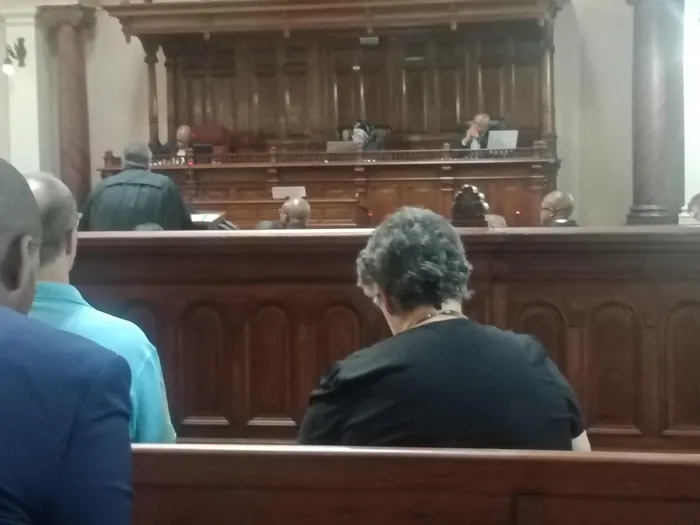Legal challenges arise for DBE over matric results publication under POPI Act

Thee judges of the Pretoria High Court are listening to arguments regarding whether the matric results may or may not be published in newspapers in future.
Image: Zelda Venter
Since the Gauteng High Court, Pretoria, issued an order, by agreement, that the Department of Basic Education (DBE) may publish the matric results in newspapers across the country, only stating the learners’ unique exam number alongside the results, the department has diligently abided by this, without any complaints from the learners.
This is according to AfriForum, which added its voice to the two-day court battle to obtain clarity on the way forward as to whether the results may once again be published early next year.
This has been an ongoing issue since 2022, when Judge Anthony Millar agreed to an order that the results may be published, as long as the candidates are not identified.
The Information Regulator (IR), however, prohibited the department in November last year from publishing the results.
It maintains that the Protection of Personal Information Act (POPIA) does not allow for this information to be placed on a public platform.
It argued that the department must first obtain the permission of the learners or their parents and guardians before the information may be published.
The DBE, in any event, went ahead and published the information, after which it was slapped with a R5 million administrative fine for not adhering to its directive.
This is one of the issues before the court this week, as the department is appealing the enforcement notice.
AfriForum commended the DBE for adhering to the 2022 court order and argued that while it did give learners the option to opt out from having their results published, not a single objection was received.
Nor were there any other complaints, other than from the IR, about the publishing of the results while only using the exam numbers.
The lobby group pointed out that even since 2016, the results have been published in the same manner.
It was only last year that the IR took up its quest to prevent the publication of the results, even if no names appeared alongside it, AfriForum said.
It stressed that the IR does not rely on a single complaint for its objection.
The DBE, in its arguments, analysed the POPI Act in a bid to show the court that by publishing the results, not a single section of the Act is being violated.
Pansy Tlakula, chairperson of the IR, however, stated that the department will not be harmed if matric results were only issued directly to learners at their schools or via the department’s SMS platform.
It was argued by the IR that this will ensure that there is no contravention of the POPI Act and that results are only accessible to learners, protecting their personal information.
Advocate Kennedy Tsatsawane SC told the full bench - three judges - that there is, in fact, no evidence to prove that the publication of matric examination results in newspapers is to benefit the learners.
“Of importance, there is no obligation on the DBE to publish matric examination results in local newspapers,” he said.
Tsatsawane argued that the DBE remains obligated to release matric results directly to the learners themselves and not to any unauthorised person.
He added that in January 2023, the DBE published the 2022 matric examination results on media platforms such as newspapers without identifying the names and surnames of the learners, but disclosed their examination numbers and the relevant schools.
“The DBE did this without the consent of the learners. The learners’ examination numbers constitute identifying numbers by which learners are identifiable,” Tsatsawane said in maintaining that this went against the POPI Act.
Judgment is reserved.
zelda.venter@inl.co.za
Related Topics: